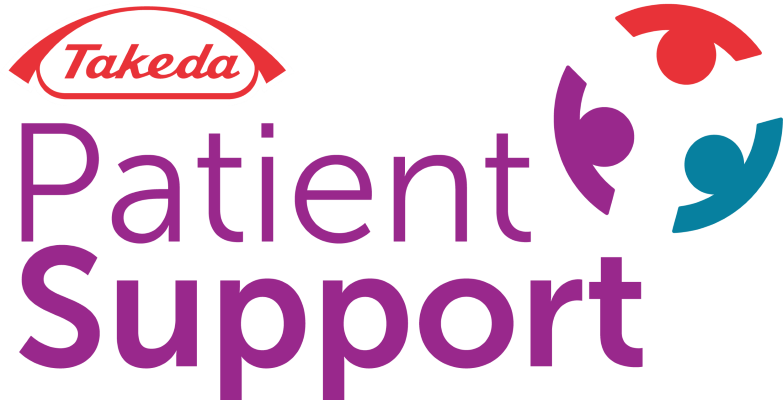*IMPORTANT NOTICE: Takeda’s Co-pay Assistance Program ("the Program") provides financial support for commercially insured patients who qualify for the Program. Participation in the Program and provision of financial support is subject to all Program terms and conditions, including but not limited to eligibility requirements, the Program maximum benefit per claim and the annual calendar year Program maximum (“Annual Program Maximum”). The Annual Program Maximum for your prescribed Takeda product can be found by visiting: https://www.takedapatientsupport.com/copay.
By enrolling in the Program, you agree that the Program is intended solely for the benefit of you—not health plans and/or their partners. Further, you agree to comply with all applicable requirements of your health plan. The Program cannot be used if the patient is a beneficiary of, or any part of the prescription is covered by: 1) any federal, state, or government-funded healthcare program (Medicare, Medicare Advantage, Medicaid, TRICARE, etc.), including a state pharmaceutical assistance program (the Federal Employees Health Benefit (FEHB) Program is not a government-funded healthcare program for the purpose of this offer), 2) the Medicare Prescription Drug Program (Part D), or if the patient is currently in the coverage gap, or 3) insurance that is paying the entire cost of the prescription. No claim for reimbursement of the out-of-pocket expense amount covered by the Program shall be submitted to any third-party payer, whether public or private.
Some health plans have established programs referred to as ‘co-pay maximizer’ programs. A co-pay maximizer program is one in which the amount of a patient’s out-of-pocket costs is adjusted to reflect the availability of support offered by a manufacturer’s co-pay assistance program. If you are enrolled in a co-pay maximizer program, your Annual Program Maximum may vary over time to ensure the program funds are used for your benefit (for the benefit of the patient). Takeda also reserves the right to reduce or eliminate the co-pay assistance available to patients enrolled in an insurance plan that utilizes a co-pay maximizer program.
If you learn your health plan has implemented a co-pay maximizer program, you agree to notify the Program immediately. It may be possible that you are unaware whether you are subject to a co-pay maximizer program when you enroll or re-enroll in the Program. Takeda will monitor program utilization data and reserves the right to discontinue assistance under the Program at any time if Takeda determines that you are subject to a co-pay maximizer, or similar program.
The Program only applies in the United States, including Puerto Rico and other U.S. territories, and does not apply where prohibited by law, taxed, or restricted. This does not constitute health insurance. Void where use is prohibited by your insurance provider. If your insurance situation changes you must notify the Program immediately. Coverage of certain administration charges will not apply for patients residing in states where it is prohibited by law.
This Program offer is not transferable and is limited to one offer per person and may not be combined with any other coupon, discount, prescription savings card, rebate, free trial, patient assistance, co-pay maximizer, alternative funding program, co-pay accumulator, or other offer, including those from third parties and companies that help insurers or health plan manage costs. Not valid if reproduced.
By utilizing the Program, you hereby accept and agree to abide by these terms and conditions. Any individual or entity who enrolls or assists in the enrollment of a patient in the Program represents that the patient meets the eligibility criteria and other requirements described herein. You must meet the Program eligibility requirements every time you use the Program. Takeda reserves the right to rescind, revoke, or amend the Program at any time without notice, and other terms and conditions may apply.



